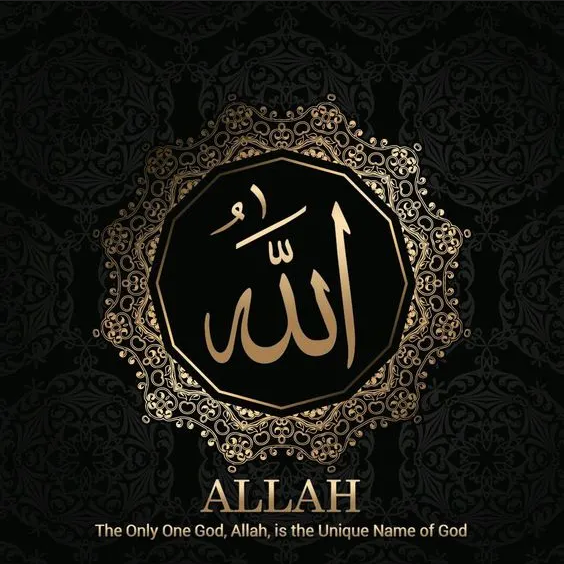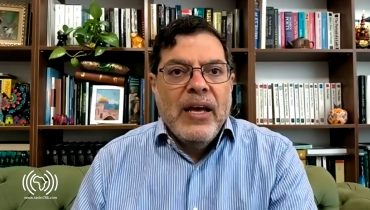Shaykh Fakhruddin Owaisi writes
“To do or not to do” is a question that has bothered human conscience since history immemorial. But who or what decides the answer to this essential and existential question? Most humans, past and present, have traditionally sought the answer to this question from Heaven, i.e. a transcendent source of wisdom not limited by human restrictions, biases and weaknesses. Let us call this source “Revelation”.
Some sought it from human intelligence and the accumulated wisdom, experience and insight of man. From that mind power we have called “Reason”. In our modern times, human Reason has come to hold the same sanctity as Divine Revelation for many people. I do not have the time and space here to delve into the reasons for this radical development. But suffice it to say, we see a trend today of subjecting Revelation to Reason. Or even a total debunking of Revelation, replacing it with Reason.
So we hear voices saying ‘Good and Bad is decided by man and not God’. And that ‘God has no business telling us what to do’. And ‘We do not need God to teach us anything’.
How do we as Muslim believers respond to this? How do we deal with this battle of Reason vs Revelation?
Reason in Islam
Firstly, I want state that Islam, the final Divine revelation to man, has given great importance to Reason. Throughout the holy Qur’an there are numerous references to Reason. The scripture addresses the reader again and again: “Don’t they reason?!”, “Don’t they think?!”, “Don’t they reflect?!”.
There is a famous saying attributed to Prophet Muhammad (PBUH) that the first thing God created was the Intellect (Aql).
So, in traditional Muslim theology, Reason and Revelation were not considered as contradictory and conflicting. It was believed that sound Reason can only confirm the truth of Revelation. In fact, Reason was one of the main factors in establishing the veracity of Revelation itself. The famous Islamic “genius of Europe” Ibn–Rushd (aka Averroes) of Spain authored a volume named “The conclusive affirmation of the relationship between Philosophy and Religion”. Even the hard-line literalist scholar Ibn–Taymiyyah authored a large book named “The conformance of sound Reason with authentic Revelation”.
However, like all human faculties, Reason also has its limitations. Man cannot understand everything. Man does not know everything. Men cannot agree on everything. What is reasonable for one man may be unreasonable for another. It is therefore entirely reasonable to believe that human Reason alone cannot have the answers to all the questions and issues troubling mankind.
It is said that we must follow “what is rational and meaningful”. But who decides that? What is meaningful to me might not be the same to you.
That is why we turn to Heavens; to God; to the source of all our own reasoning in the first place. Only God can decide what is “Universal Moral Truth”, as only God is Universal. There is no such universality but for the Divine and Transcendent. Every nation on earth submits to God’s Transcendence.
The Role of Revelation
Muslim scholars have stated over the centuries that while it is fine to use our human reasoning in determining the best course of action; it cannot however override the Divine Commands from Heaven.
This is because Divine Revelation represents Absolute intelligence; the Eternal wisdom; and Infallible Reason. The Source of it all! So, while human reasoning can be wrong, Revelation can never be wrong. Reason “correcting” revelation is like a grade–1 student correcting his teacher. Students may vary in how much they learn from the teacher. But a student cannot correct the teacher in essence. In our case, human reasoning can never be a higher standard than its own Progenitor and Creator.
Twenty-first century humans must humble themselves and realize that they are not their own creators. They, with all their faculties, are the product of a great Other. Religions may disagree on details, but all agree on this essential fact. Even many scientists agree on this point today. We do not come from nothing. According to the law of physics, only nothing comes from nothing, and something comes from something.
It may be said that we are a product of chance. However, according to modern science, our Universe is 13 billion years old; but the time it takes to create ONE human protein by CHANCE is 634 million billion (yes million billion) years! That’s the age of our universe multiplied by 45 million years! Even with all our technological advancement, we still cannot create a camera with the capacity of the human eye (576 megapixels).
One of the greatest proofs of the existence of God (and it really needs no proving) is our will to reason itself! Have we ever asked ourselves: WHY do we reason? WHY do we seek truth? WHY do we want to do “good”? We as humans have this desire for truth and good, precisely because deep down within our souls (psyche/subconscious) we KNOW that there is greater reality than ourselves; a transcendent Truth….and we must find it. Or in religious terms: return to it.
Otherwise, how does a human being (who is made up of 65% Oxygen, 18% Carbon, 9.5% Hydrogen and 3.3% Nitrogen) decide to “seek truth” and “do good”??? From a purely material point of view, we should simply be robots with no individual consciences.
Truth and Good are concepts that our minds have been made conscious of by God. It is futile, even funny, to argue about “whether God has a right to tell us what is good and what is bad” when our very consciousness of “Good” and “Bad” come from God (from beyond our physical composition).
As Frithjof Schuon writes in Understanding Islam (p.72): “To believe that man is ‘all right’; that he has the right to simply demand ‘to be left alone’; that he has no business with moral agitations and eschatological fears; means a failure to see that the limitations which in a sense define man have fundamentally a kind of ‘abnormality’. The mere fact that we do not see what goes on behind our backs and are ignorant of what tomorrow will be like proves us to be in certain respects very insignificant and shows that we are ‘accidents’ of a ‘substance’ greater than ourselves”.
I agree to a certain degree with the statement that “God is reminding us of what we already know to be wrong”. But, that original knowledge itself is from God. Furthermore, it can be clouded by human passions and weaknesses. That’s why we consciously decide to sin, while knowing that what we are doing is wrong. Man cannot survive on his own intellect only, devoid of Guidance from above. Anyone who thinks he can do that is the same as a 2 year old child who is convinced that he can navigate the street safely, without the guidance of his parents. The feeling of “independence” (in our case, from God) is exciting, but lethal at the same time.
What is Good and Bad
Why is it “good” to give charity to the poor and “bad” to kill someone?
Do we need God to state this for us and or is it “obvious” through Reason?
Proponents of “Reason only” will state that these things are obvious through reason and intellect.
But is it so? If one ponders deep enough, one will realize that there is no empirical proof that charity is good or that murder is bad. In fact, pure human reasoning (devoid of any spiritual guidance from Heaven) may even prove the opposite! Empirically speaking, when we give charity, we become poorer. And in many cases, murdering someone has good results for a person (a poor guy who needs money kills a rich guy and takes his money). If there is no God and everything is by chance (i.e. we are all a big bag of chemicals mixed up), then what intrinsic value is there to human life? None at all.
It may be said that we shouldn’t kill someone as it may result in a painful reprisal against us. But that is just a practical consideration. It does not give any essential value to a human soul. So, if a poor man kills a rich man secretly and takes his money, will it be fine? Since no one will know who did it and therefore there is no fear of reprisal? Say the rich man was old also and had more money than he needed?
My point is; if we take God out of the equation, then there remains no real value or meaning to anything in existence. And without any intrinsic value and meaning we cannot term something as good or bad.
Every act would be equal. Since time immemorial, man has considered murder to be bad simply because he (correctly) believed that God is the creator and owner of life and has not given us mortals the right to take the life of another (except where God Himself allows it).
Charity was and is considered good because God is the provider of all wealth and we mortals have a responsibility from God to share it with those granted less than us. God will reward the charitable and punish the murderers. This brings us to the subject of accountability.
Morality without Accountability
The issue of accountability is of paramount importance in any discussion of morality. For time immemorial, man has fought off the temptations, allures and rational/pragmatic motivations to do bad simply due to his fear of being accountable in front of the All–Seeing All–Knowing and All–Powerful. Even the laws and regulations of modern society are enforced by accountability, in this case to police and magistrate. This accountability however is limited. It is possible to get away from it, and many do indeed. Hitler died after killing millions of Jews. Verwoerd died after destroying the lives of millions. These men were not punished in this world. However, our innermost being tells us that they will indeed face real justice by the Creator of all. Or else, there is no justice in this world.
One either believes in God or doesn’t. If one doesn’t believe in God, it is futile to convince him of the revealed laws of God. If one does believe in God, then it is silly for for him to deny the laws of God. One may argue at here that each religion has its own set of beliefs and laws, so who exactly represents God?
To this we say: although each religion may differ in details, the essence of them all is one; i.e. man requires guidance from a higher source. And this is enough. The core values of all religions are the same. There is not a religion that permits robbery and rape or condemns charity and compassion. Therefore, one need not fear about the variety in religions. There is a common morality among all of them.
The statement that “murder is wrong whether God exists or not” is not logical. The correct thing to say would be: “Murder is wrong because God exists. Or else, there is no point in life or death”. The same goes for the statement that “if God disappeared tomorrow, the difference between right and wrong will still be apparent”. Firstly, God cannot, by essence, disappear. If He could disappear, He wouldn’t be God, the Absolute Reality. Secondly, if there was no God, we would be the creation of random chance (a nonsensical proposition in itself) and there would be no such thing as Right & Wrong.
What modern day atheists fail to realize (or are embarrassed to acknowledge) is that even their own conceptions of right and wrong are not really based on any scientific evidence (which is not possible in any case), but in religious truths embedded in the human psyche from time immemorial. The atheist has no scientific proof that murder is wrong. However he believes it to be wrong because men have always considered it to be wrong. Now, men have always considered it to be wrong because Divine Revelation decreed it as wrong. There is no running away from this fact.
Final Word
The purpose of this write up is not to glorify religion or religious people but to remind all of us, religious and non–religious, of the Transcendent Source of Wisdom. It was claimed that by turning to God for guidance, “morality becomes arbitrary.” On the contrary, the only morality that is not arbitrary is the great truths agreed upon by all religions. It is man–made morality that is arbitrary. The statement that man must only follow the commands of Divine Revelation he is “comfortable with” is an anomaly. If one accepts these commands as emanating from the Absolute source of all wisdom, then he must concede that they are in his best interest even if his own limited wisdom doesn’t totally comprehend them (yet).









